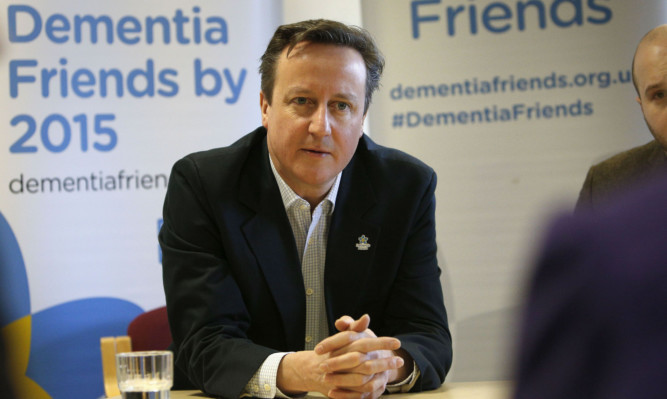
More than £300m is to be spent on research to find a cure for dementia, the Government has announced.
Prime Minister David Cameron has unveiled plans for an international dementia institute to tackle “one of the greatest challenges of our lifetime”.
He vowed that, over the next five years, the UK would become a world leader for research and medical trials.
The Tory leader also announced a separate multi-million pound fund would be launched within weeks to establish an international investment scheme, aimed at discovering new drugs to slow the onset of dementia.
He said the announcement signalled a bold ambition to make the United Kingdom “the best place on the planet” in terms of research.
In addition to aiding research, he said the investment would help with “diagnosing people with dementia and then in terms of treating, helping and caring for them”.
He said it would extend “not just to hospitals and care homes, but to the whole of our country.”
He said: “We have gone a huge way in the last five years of really putting this issue on the map and now we are making very bold announcements for the future.”
There are approximately 850,000 people living with dementia in the UK, with the number expected to hit a million within the next 10 years.
The pledge, part of the “Prime Minister’s Challenge on Dementia 2020”, also includes nationwide dementia training programmes and the creation of a number of “dementia-friendly communities”.
Other initiatives will see 1.3 million NHS workers, from surgeons to hospital porters, trained to give people with dementia the best care.
Three million “dementia friends” will also be created to support people with the condition and major employers, including Marks & Spencer,
Asda and Lloyds banking group have already agreed to train their staff to become dementia friends.
Jeremy Hughes, chief executive of the Alzheimer’s Society, has welcomed the PM’s pledge as a positive step. He said: “Dementia Friends is truly changing attitudes and capturing the public’s attention.
“This Government has rightly prioritised dementia.The PM deserves credit for the phenomenal achievement in getting dementia on the national and global agenda.”

Enjoy the convenience of having The Sunday Post delivered as a digital ePaper straight to your smartphone, tablet or computer.
Subscribe for only £5.49 a month and enjoy all the benefits of the printed paper as a digital replica.
Subscribe